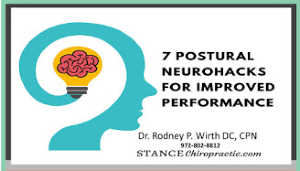Embracing the Reality of Neuroplasticity
Your brain is amazing. In the mid 1900’s scientists argued that our brains stopped growing and learning. New research (Cramer, 2011) says otherwise. Largely, your nervous system continually reorganizes its structure through new neural connections throughout your entire life. Basically, your brain is ever resilient and eager to respond to any event allowing the neurons to fire together and connect as they become stronger. The biggest problem our aging population faces is their self-belief that they are too old to learn new things and to continue growing. You must continue learning, moving and embracing new experiences for optimum mental and physical health. The ability to do all these things is called neuroplasticity.
What you do day to day, and your attitude as you do it, strongly influence your brain’s function through responding to the different stimuli and the remodeling of the synapses. You can participate actively and consciously in improving your posture and reducing pain levels through the rewiring of your brain. The more attention you pay to the changes needed and the more you practice it, the easier it will become.
MOVE WITH PURPOSE
Your brain craves complexity even in the exercises you perform. Repeating the same exercises over and over merely strengthens the muscle but does not make neuroplastic changes in the brain. This is because traditional strength training exercises are uni-planar. For this reason, it is important to discover what areas of the posture system are weak in order to get specific and novel rehabilitation movement started. The good news is that changes come quickly and the exercises simply have to be repeated several times a day for relatively short periods of time.
MOTIVATE YOURSELF WITH A MOOD CHANGE
Research is showing that your mood really matters. When you are motivated, engaged and alert as you perform postural rehabilitation exercises, your brain will release the neurochemicals needed for lasting change. Actually, if you are simply repeating uni-planar exercises that don’t require focus, then your neuroplasticity switches off. Therefore, mindfulness of movements is extremely important.
Your thoughts release a certain type of chemical into your brain. Research has shown that when you assume a ‘power stance’ your brain responds in a positive way. As you hold this stance for a minute or two and think on what is working well, your cortisol levels decrease and your brain increases serotonin so that you feel calmer, less anxious, more focused and more emotionally stable (Scaccia, 2017).
MOBILIZE POSITIVE NEUROPLASTICITY
A study by Vance, D. et al in 2010 showed that poor health, poor sleep hygiene, poor nutrition, substance abuse and lack of focused physical exercise all contribute to cognitive decline. None of these are surprising yet why do we stay in the negative mode when positive lasting change is within our reach. The reasons you may not be motivated to change your habits might be locked away in a belief that you have no control over your time and life.
Positive neuroplasticity grows through social interaction, intellectual pursuits, education and focused physical exercise. Looking on the positive side of the issue, take steps to sleep well, eat right, develop more social connections, find peace through your faith and carve out time for exercise. None of these components are surprising yet you may need help. Are you wondering where to start?
Call us at 972-802-8812 to schedule your Annual Posture Check-up. We can quickly identify the areas of your brain that need to be stimulated for better posture and pain free living. When combined with rehabilitation movements that are tailored to your specific areas of needs, the results can quickly improve your posture and your health. It’s not as hard as it seems. We are here to help.
Dr. Rodney P. Wirth DC has treated thousands of patients in over 20 years of experience in wellness and personal injury. As a Certified Postural Neurologist, his goal is to get you out of pain and re-train your brain to improve your health and prevent that pain from coming back.



